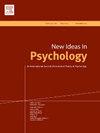虚拟现实分析地图(VRAM):利用虚拟现实数据检测精神障碍的概念框架
IF 2.9
3区 心理学
Q2 PSYCHOLOGY, EXPERIMENTAL
引用次数: 0
摘要
虚拟现实(VR)是一种新兴的心理保健工具,但其在诊断评估方面的潜力仍未得到充分挖掘。认识到对支持传统心理健康评估方法的技术进步的需求日益增长,本文介绍了虚拟现实分析地图(VRAM),这是一个新颖的概念框架,旨在利用虚拟现实分析技术检测精神障碍的症状。VRAM 框架将心理结构与 VR 技术相结合,通过特定的 VR 任务系统地映射和量化行为领域。这种方法可以精确捕捉和识别与精神障碍症状相关的细微行为、认知和情感数字生物标记。VRAM 框架在各种精神障碍中的应用实例展示了该框架的优势,确保了该框架的实用性和多功能性。通过缩小心理学与技术之间的差距,VRAM 框架旨在为精神障碍的早期检测和评估做出贡献。本文章由计算机程序翻译,如有差异,请以英文原文为准。
Virtual reality analytics map (VRAM): A conceptual framework for detecting mental disorders using virtual reality data
Virtual reality (VR) is an emerging tool in mental health care yet its potential in diagnostic assessments remains underexplored. Recognizing the growing need of technological advancements that support traditional methods for mental health assessment, this paper introduces the Virtual Reality Analytics Map (VRAM), a novel conceptual framework designed to leverage VR analytics for the detection of symptoms of mental disorders. The VRAM framework integrates psychological constructs with VR technology, systematically mapping and quantifying behavioral domains through specific VR tasks. This approach potentially allows for the precise capture and identification of nuanced behavioral, cognitive, and affective digital biomarkers associated with symptoms of mental disorders. The benefits of the VRAM framework are demonstrated with its example application across various mental disorders ensuring the utility and versatility of the framework. By bridging the gap between psychology and technology, the VRAM framework aims to contribute to the early detection and assessment of mental disorders.
求助全文
通过发布文献求助,成功后即可免费获取论文全文。
去求助
来源期刊

New Ideas in Psychology
Multiple-
CiteScore
4.80
自引率
3.80%
发文量
37
期刊介绍:
New Ideas in Psychology is a journal for theoretical psychology in its broadest sense. We are looking for new and seminal ideas, from within Psychology and from other fields that have something to bring to Psychology. We welcome presentations and criticisms of theory, of background metaphysics, and of fundamental issues of method, both empirical and conceptual. We put special emphasis on the need for informed discussion of psychological theories to be interdisciplinary. Empirical papers are accepted at New Ideas in Psychology, but only as long as they focus on conceptual issues and are theoretically creative. We are also open to comments or debate, interviews, and book reviews.
 求助内容:
求助内容: 应助结果提醒方式:
应助结果提醒方式:


